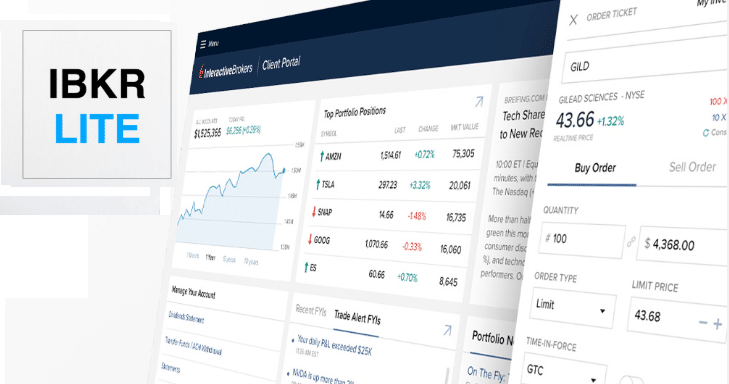US-based stockbroker Interactive Brokers has reinforced its credentials as a low-cost broker this week.
What have Interactive Brokers done?
The online multi-asset platform recently rationalised its UK and European rate cards by offering flat fee executions on small trades and commissions of just a few basis points on those trades that exceeded a £6000 or €6000 threshold.
The brokerage which is headquartered in Greenwich Connecticut, but which operates across the globe, has also highlighted its US execution rates by publishing a comparison table that compares the fees Interactive Brokers charges, versus those of 8 leading UK and European brokers.
Interactive Brokers directly compares what its clients would pay on US equity trades with considerations of £2000, £5000 and £10,000 and highlights the differential between its fees and those of the opposition.
Using the strapline
“Zero Commission Isn’t the Same as Free”
The results are quite eye-opening.
For example on the trade of 100 US shares, with a £5000.00 consideration, Interactive Brokers would charge total trade costs of just £2.05.
That compares to all-in costs of £12.93 at Degiro, £22.50 at Freetrade, £59.95 at AJ Bell and £82.99 at Interactive Investor.
Interactive Brokers breaks down the figures, it charges 3.50 basis points of commission on US equity trades and an additional FX conversion fee of 2.0 basis points, subject to a minimum ticket charge of $2.00.
The firm also breaks down the charges that it believes clients would pay at its rivals for that same trade.
Are the Interactive Brokers comparisons valid?
To be fair to the competition it’s probably correct to point out that Interactive Brokers makes certain assumptions about how that trade might be executed at its rivals and the type of accounts that clients might hold there.
So one could suggest that they have cherry-picked examples that show Interactive Brokers in the best light, but why wouldn’t they? After all, it is their marketing exercise.
But even allowing for that, the differential in total fees charged, particularly on larger trades, are so wide that it’s hard to imagine that the opposition would be able to come close to the Interactive Brokers charges.
To illustrate that point let’s consider a trade in 200 shares of a US stock, with a consideration of £10.000.
Interactive Brokers will charge £2.59 all in, Degiro £25.43, eToro £50.00 and Saxo Markets £107.55.
No doubt we will see these comparisons refuted by the opposition brokers at some stage but for now, Interactive Brokers is very much on the front foot and has put the ball, or balls, firmly into the opposition court, if I may mix my sporting metaphors.

With over 35 years of finance experience, Darren is a highly respected and knowledgeable industry expert. With an extensive career covering trading, sales, analytics and research, he has a vast knowledge covering every aspect of the financial markets.
During his career, Darren has acted for and advised major hedge funds and investment banks such as GLG, Thames River, Ruby Capital and CQS, Dresdner Kleinwort and HSBC.
In addition to the financial analysis and commentary he provides as an editor at GoodMoneyGuide.com, his work has been featured in publications including Fool.co.uk.
As well as extensive experience of writing financial commentary, he previously worked as a Market Research & Client Relationships Manager at Admiral Markets UK Ltd, before providing expert insights as a market analyst at Pepperstone.
Darren is an expert in areas like currency, CFDs, equities and derivatives and has authored over 260 guides on GoodMoneyGuide.com.
He has an aptitude for explaining trading concepts in a way that newcomers can understand, such as this guide to day trading Forex at Pepperstone.com
Darren has done interviews and analysis for companies like Queso, including an interview on technical trading levels.
A well known authority in the industry, he has provided interviews on Bloomberg (UK), CNBC (UK) Reuters (UK), Tiptv (UK), BNN (Canada) and Asharq Bloomberg Arabia.
You can contact Darren at darrensinden@goodmoneyguide.com



